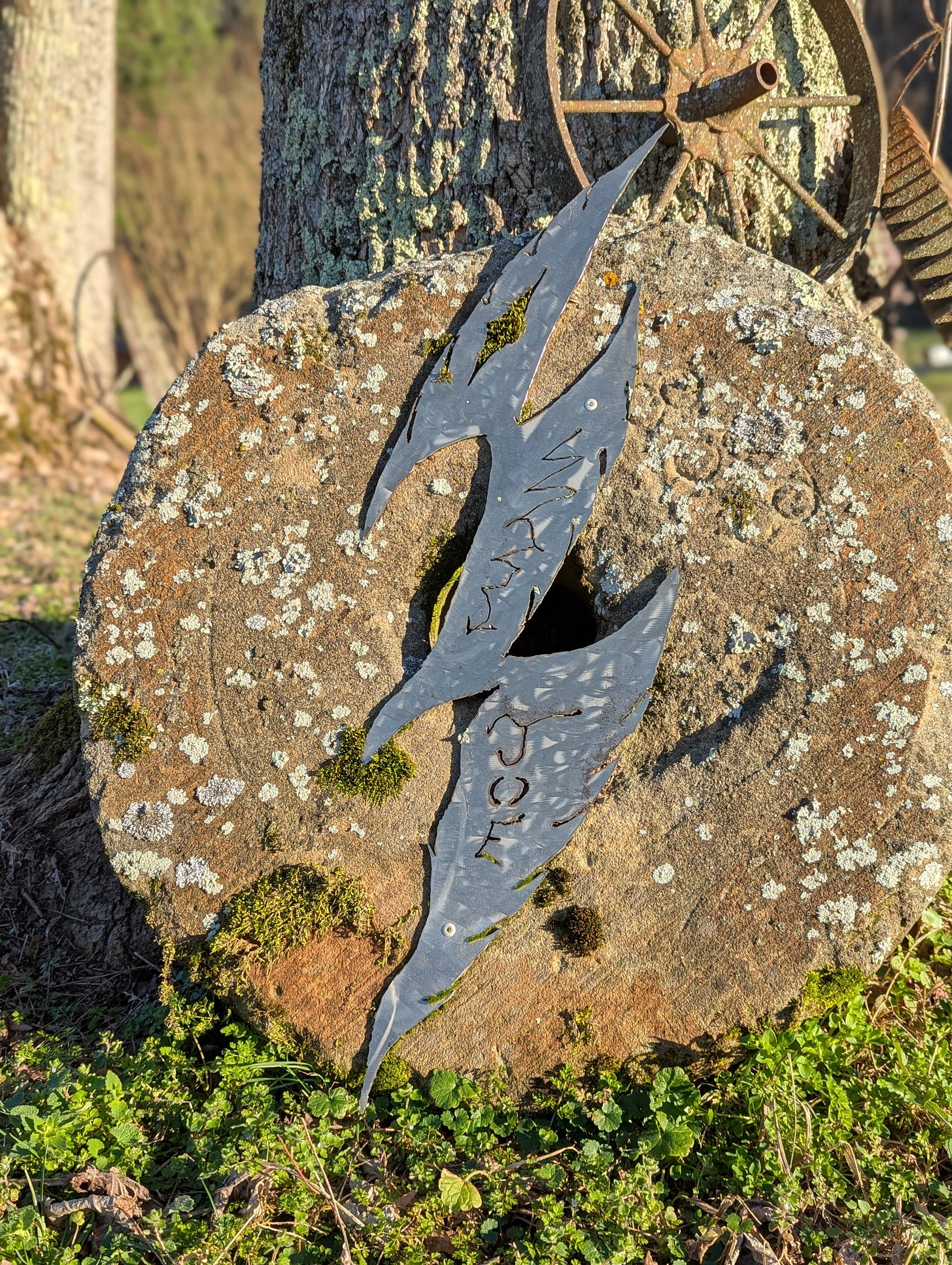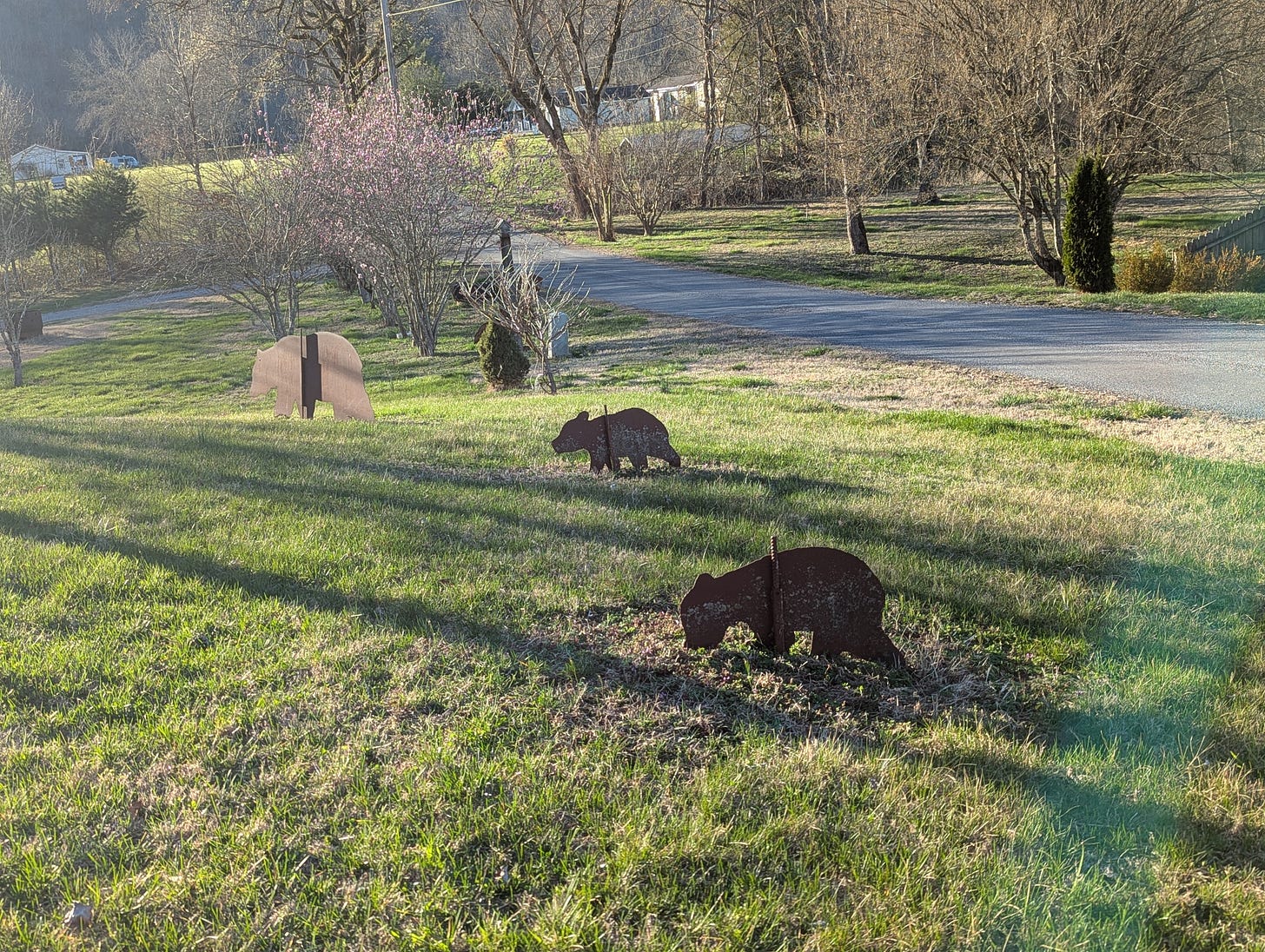This morning, I woke up in my own bed for the first time in two weeks. My exhaustion when I returned home yesterday was enough to send me to bed for a two-hour nap in the afternoon, followed by dinner of a frozen lasagna tossed in the oven because I didn’t have the energy to cook, and an early bedtime. I’m finally beginning to feel like a human this morning after nine hours of sleep.
This profound exhaustion comes on the heels of two weeks spent in Tennessee attending to the care needs of my father. He has been sick, bouncing in and out of hospital emergency rooms with no real diagnosis, for the past two years. During that time, he has lost nearly half his body weight. At a height of six feet, three inches, he once weighed 190 pounds. Today, he is under 100 pounds, bones protruding from his skin like tent poles propping up canvas.
When he was first admitted to a regional medical center at the beginning of this month, I was hopeful they might be able to get to the bottom of his malady, but soon they also turned toward the tired excuse of “failure to thrive.” I hopped on a plane to get down there and push for answers.

Once I arrived, he seemed willing to eat anything I brought from surrounding restaurants and doctors scrapped the original idea and began to run tests to determine the underlying cause of his weight loss, nausea, and shortness of breath. Scans revealed multiple masses in multiple locations, indicating a metastatic process. However, they couldn’t concretely diagnose his illness without either an MRI or a biopsy. The MRI was precluded by his pacemaker, and they did not want to perform a biopsy or any other invasive procedure due to his overall poor health and malnutrition.

There was one noninvasive procedure that could give them greater insight into the cause of his illness, but they required prior authorization from the VA. We waited two days for feedback, but given the latest round of cuts, they said it could take a few weeks to hear back. During this wait, my father developed severe pain that required intense administration of painkillers to control.
The doctor ordered two maintenance drugs in an effort to keep his pain levels down, but my father had experienced a bad reaction to those two drugs in the past. I mentioned to the nurse that those drugs had caused him to go into a state I can only describe as “zombie mode” and he can’t take them. Apparently, she put the note in his chart, but nobody read the notes and gave the meds to him anyway.
Once he received the drugs, my father no longer appeared to be in pain, but he no longer appeared to be alive either. He wouldn’t eat or drink and stared at the wall with a confused and frightened look in his eyes. He didn’t know who I was or where we were. He tried to get out of the bed while I was there, but I wrestled him back down. He is a below-the-knee amputee and was determined to walk around without his prosthesis. Later that same night, he decided to go for a walk when I wasn’t there and took a nasty fall in his hospital room.
The next morning, I got to his room before 7:00 in the morning to get the full report from the night shift nurse, then I asked the day nurse to go over every pill in his cup before he took them. That’s when I discovered that he was taking the two medications that activate zombie mode. I asked the nurse to hold those medications, and when the doctor came around, we agreed to flag them as an allergy in his chart so it will pop up as a warning if those are prescribed again.
During that same conversation with his doctor, I asked him what we were trying to achieve. Was it truly necessary to pinpoint the type of cancer or where it began? That would be the next logical step if they were going to treat it with chemo or radiation, but given his extremely poor body condition, would he be a candidate for such intervention? Eventually we agreed that the goal should be comfort, not cure. He reached out to the case manager who began the paperwork for hospice care that day.
Our experience with hospice care has been extremely positive so far. He is able to remain at home, which is what he wants, and receive the care he requires.
I will write about the hospice experience in my next post. My exhaustion limit for this morning is here, and I’m going to take a break. I’ve learned a lot through this experience, and I hope to share some of that knowledge with you just in case you ever need to use it.
Hug your loved ones extra tight today. One day, it will be the last time you get to do it, and you won’t know it’s the last time when you do it.




So sorry for what you are going through. Hugs.
You are one wonderful daughter